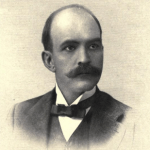
The day of the lawyer who depended upon inspiration, and whose chief preparation for forensic victory was the acquisition of alcoholic stimulants, is past. The lawyer of today depends not alone upon inspiration, but also upon hard work in preparing his cases for trial, and upon their careful presentation and handling in the courts. Usually he has to convince hard-headed business men of the merits of his case, which involves nothing of sentiment or of sensationalism and much of pecuniary interest and of commercial right and wrong, pure and simple. He goes before a judge and jury cool, collected, alert, bristling with business, equipped with a thorough knowledge of principles and decisions applicable to his case, ready for emergencies, and with the persuasive oratory of reason and precedent clearly expressed and logically arrayed, but having little need for mere theatrical display. Thus equipped, thus discharging his duty to his client, to the court, and to himself, he wins upon the law and the evidence, ably interpreting the one and bringing out the full force of the other. Such a modern, successful lawyer is the subject of this sketch, concerning whose life we have gathered the following facts.
Frank Sigel Dietrich was born near Ottawa, Kansas, January 23, 1863, and came of German ancestry. Both his father and his mother were born near Frankfort, in Germany, where they spent the early portion of their lives, but, imbued with that strong desire for personal liberty and personal rights characterizing so many Germans, they emigrated to America in 1855. For two years they lived in the city of Chicago, but still desiring greater freedom, and being touched by the stirring drama then being enacted upon the border territory, they moved further west, settling at Ohio City, Kansas, where, as a pioneer, Jacob Dietrich, the father, began to till the soil, an occupation for which he was little fitted either by training or experience, but of which he made a success.
Kansas was then passing through a critical period in her history. As an abolitionist and as a Union man, after the question of disrupting or supporting the Union of the states became an issue, Mr. Dietrich passed through the vicissitudes of those years in “bleeding Kansas,” living as he did on the very scene of the careers of Ouantrell and John Brown, not without great personal danger, until his death in September, 1863, when his son, Frank Sigel Dietrich, who had been named in honor of the German patriot Franz Sigel, prominent as a general in the civil war, was only eight months old. He left a widow and, besides the subject of this sketch, two children, John Dietrich, now superintendent of the public” schools .of Colorado Springs, Colorado, and Charles F. Dietrich, still residing near the old homestead and employed as a traveling salesman. Mrs. Dietrich remarried, becoming the wife of Jacob Puderbaugh, and by that marriage had one child, a daughter, Addie, who, as the wife of George M. Hill, resides at Arkansas City, Kansas.
Such education as was obtainable in the common schools during the winter months, the boy Frank acquired, working upon the farm during the summer, and then, through the sacrifices of his devoted mother, the second time a widow, and through his own industry, he was fitted for college in the academic department of Ottawa University, and took the classical course at Brown University, Providence, Rhode Island, graduating with honors in the class of 1887. Two years thereafter he passed at the Ottawa University, as instructor of history and political economy. In July 1891, he came to Idaho to practice his chosen profession, and in January 1892, was admitted to the bar of the courts of that state and of the United States. He has since carried on his work with such success as has brought to him what is doubtless one of the best practices in the state, the law firm of Dietrich, Chalmers & Stevens, of which he is the head, maintaining offices both at Blackfoot, where Mr. Dietrich formerly resided, and at Pocatello, his present residence. In January 1899, he was appointed attorney for the Oregon Short Line Railroad Company, with jurisdiction over Idaho and Wyoming, which position he now holds.
Mr. Dietrich has always been a Republican, participating actively as a citizen in politics, never, however, being a candidate for office until the fall of 1898 when he was put forward by the “silver” wing of the Republican party as a candidate for the office of district judge, and, though running ahead of his ticket, yet, because of the almost equal division of the Republican strength on the “silver” issue, he failed of election, the vote he received giving ample evidence of the public confidence reposed in him.
September 27, 1893, he was united in marriage to Miss Martha Behle, a daughter of Dr. William H. Behle, now of Salt Lake City, and to them has been born one child, a daughter, named Margaret Kathryn, now aged two years. Mr. and Mrs. Dietrich are both members of the Baptist Church, taking an active part in the social and religious life of the community in which they live. While in college Mr. Dietrich was a member of both the Delta Upsilon and Phi Beta Kappa societies and he has since become also an Oddfellow and a Mason.
